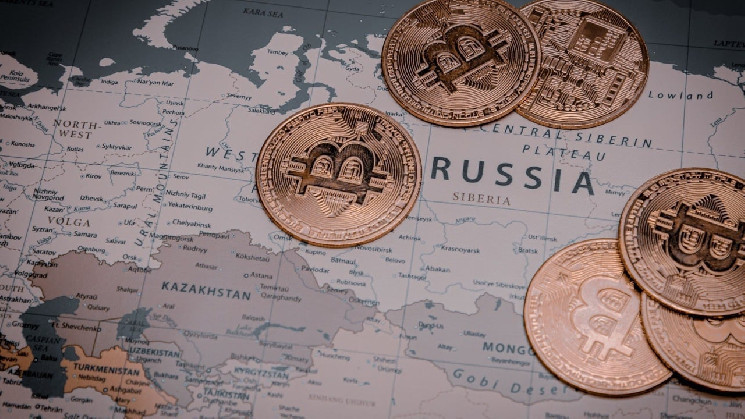Russia’s increasing reliance on Bitcoin and other cryptocurrencies for international trade represents a significant geopolitical shift with potentially far-reaching consequences. Driven by the need to circumvent Western sanctions imposed in response to the conflict in Ukraine, this strategic pivot underscores Russia’s determination to maintain economic viability and forge new global partnerships, while simultaneously challenging the dominance of the US dollar and traditional financial systems. Moscow’s embrace of digital currencies is not merely a tactical maneuver but a calculated strategy to reshape global power dynamics and establish a more multipolar financial order.
The Western sanctions regime, designed to isolate Russia economically, has inadvertently accelerated its adoption of cryptocurrencies. Traditional financial channels have become increasingly difficult to navigate, with many international banks hesitant to process transactions involving Russian entities for fear of secondary sanctions. This has created a vacuum that cryptocurrencies, particularly Bitcoin, are filling. Their decentralized nature and resistance to censorship make them ideal tools for bypassing financial restrictions and facilitating trade with partners like China and Turkey, who are also seeking to reduce their reliance on the US dollar. Russia’s legalization of cryptocurrency mining further solidifies its commitment to this burgeoning sector, ensuring a domestic supply of digital assets to fuel international trade.
Russia’s move towards cryptocurrencies is part of a broader trend of nations seeking alternatives to the US dollar-dominated financial system. President Putin’s criticism of the US for “weaponizing” the dollar resonates with countries that have faced sanctions or experienced the limitations of the existing financial architecture. By promoting the use of cryptocurrencies, Russia aims to undermine the US dollar’s hegemony and foster a more equitable global financial landscape. This strategic move aligns with the interests of other nations seeking greater financial autonomy and resilience against geopolitical pressures. The adoption of cryptocurrencies offers a pathway to bypass the SWIFT system and traditional banking networks, creating alternative channels for international trade and finance.
The implications of Russia’s cryptocurrency strategy extend beyond mere economic expediency. By embracing digital currencies, Russia is actively shaping a new paradigm for international trade and finance, one that is less susceptible to Western influence and control. This move could potentially accelerate the global adoption of cryptocurrencies and contribute to the emergence of a more multipolar world order. Furthermore, Russia’s success in utilizing cryptocurrencies to circumvent sanctions could embolden other nations facing similar economic pressures to explore similar strategies, further challenging the effectiveness of traditional sanctions regimes. This dynamic could lead to a re-evaluation of the role of sanctions as a foreign policy tool and necessitate the development of new strategies to address economic and geopolitical challenges.
The long-term consequences of Russia’s cryptocurrency strategy remain to be seen. The volatility and regulatory uncertainty surrounding cryptocurrencies present significant challenges. While Bitcoin and other digital assets offer a degree of anonymity, transactions are not entirely untraceable, and sophisticated blockchain analysis tools are constantly evolving. The effectiveness of Russia’s cryptocurrency strategy will depend on its ability to integrate digital assets seamlessly into its existing financial infrastructure, develop robust regulatory frameworks, and foster international cooperation with partners willing to embrace this new financial paradigm.
The evolving relationship between Russia, cryptocurrencies, and international trade presents a complex and dynamic landscape. While the immediate objective is to mitigate the impact of Western sanctions, the long-term implications are far more profound. Russia’s embrace of cryptocurrencies represents a bold challenge to the established financial order, with the potential to reshape global power dynamics and accelerate the transition towards a more decentralized and multipolar financial system. The success of this strategy will depend on a multitude of factors, including technological advancements, regulatory developments, and the evolving geopolitical landscape. However, one thing is clear: Russia’s move towards cryptocurrencies marks a significant turning point in the global financial system, and its implications will be felt for years to come.


